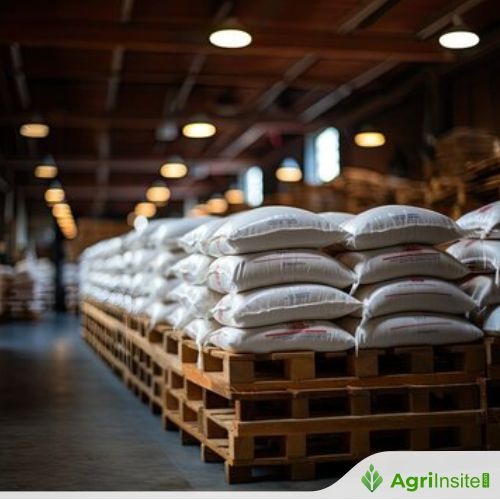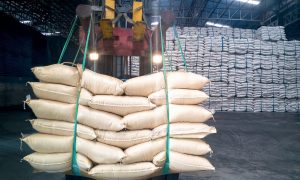NIGERIA : Towards self-sufficiency in sugar production

Nigeria’s sugar industry imports over 96% of its needs despite decades of planning. Local output is just 3% of demand, costing trillions in foreign exchange. The Punch urges empowering small farmers, enforcing backward integration, and investing in infrastructure to revive production under NSMP II and end import dependence.
NIGERIA’S sugar industry has been trapped in a cycle of underperformance, neglect, and dependency on imports for far too long.
Despite more than 15 years of promises and billions poured into the National Sugar Master Plan, Nigeria imports over 96 per cent of the sugar it consumes.
This is a national embarrassment and a massive drain on foreign reserves. The government, private sector, and all stakeholders should take urgent, coordinated action to transform this vital sector and achieve self-sufficiency. Sugar importation can and should end.
The statistics point to a worrisome decline in sugar production amid a surge in imports to meet local demand, estimated at 1.7 million metric tonnes annually. Local production stands at a paltry 40,000 to 48,000 MT, barely 3.0 per cent of demand.
This wide gap forces Nigeria to spend trillions enriching foreign sugar exporters instead of empowering local farmers and industries.
Nigeria’s sugar and sugarcane imports have surged by 328 per cent in five years, rising from N516.61 billion between 2015 and 2019 to N2.21 trillion between 2020 and 2024, according to the NBS.
This reflects a systemic failure to transform abundant land, labour, and industrial capacity into sustainable sugar output.
Nigeria once had a thriving sugar industry with household names such as Bacita Sugar, Savannah Sugar and Tate and Lyle, but disputes over land and resource allocation and significant smuggling of cheaper, illegally imported refined sugar crippled the companies.
The lack of recognition for small-scale farmers, who form the backbone of production and continue to endure neglect and lack access to improved seedlings, pesticides, irrigation, and structured markets, remains problematic.
Their produce often sells cheaply to middlemen or is wasted, while large refineries prefer imported raw sugar, sidelining local farmers. Refiners’ commitments to invest in backward integration have been implemented haphazardly with poor results.
Insecurity, poor infrastructure, limited training, and insufficient funding compound these issues, creating a cycle of low productivity and limited value addition.
Indeed, the current situation, where Nigeria has walked backwards and is now increasingly reliant on massive imports amid wasted resources and abandoned sugarcane fields, is intolerable.
Therefore, there is an urgent need to link farmers and sugar refiners to restore the value chain.
Brazil and some African countries have turned their sugar industries around through deliberate and sustained efforts. Nigeria can learn a few lessons here.
Brazil has created linkages between sugarcane farming and ethanol production and electricity generation, creating jobs and industrial growth.
Egypt, South Africa, and Kenya have made steady progress by combining strong government support, modern methods, and regional partnerships.
These successes show what Nigeria can achieve if better strategies are applied to sugar production as a matter of priority.
Beyond household consumption as a sweetener, sugar is a critical industrial input for food processing, beverages, pharmaceuticals, biofuels, and power generation.
The NSDC’s Phase II Sugar Master Plan recognises this by setting ambitious targets to produce 2 million MT of sugar, 400 MW of electricity, hundreds of millions of litres of ethanol, and millions of tonnes of animal feed from biogas by 2033. This integrated vision must be pursued with vigour.
For Nigeria to reclaim its sugar sovereignty, the government must focus on empowering smallholder farmers by providing funding, modern inputs, training, and assured markets.
Private sector players like Dangote Sugar, BUA, and Golden Sugar must deepen backward integration that benefits local farming communities. Critical infrastructure and security concerns must be addressed to create an enabling environment for growth.
Nigeria has the resources, the climate, and the people to transform into in sugar production and processing powerhouse. What it lacks is the political will, coherence, and genuine partnership across the value chain.
A thriving sugar sector has immense potential for job creation, power generation, biofuel production, and enriching farmers.
The revised NSMP II presents another opportunity to learn from the mistakes of the past and harness the ample resources available to reposition the sugar industry. This should not be missed.
To Read more about Sugar Industry continue reading Agriinsite.com
Source : Punch
















